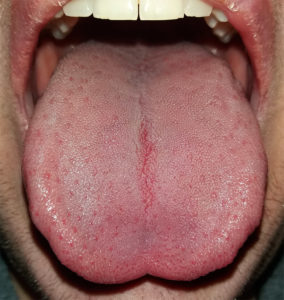 Notice that the carbon dioxide levels in the air keep rising and rising? Along with the world getting hotter, the carbon dioxide levels are rising, and last year it hit 414.7 parts per million (ppm). This is the highest it has been in at least 800,000 years, and maybe for millions of years! (It's from the burning of fossil fuels.) Soo... the big question is: What will increasingly higher CO2 levels mean for our brains - for our thinking and cognition?
Notice that the carbon dioxide levels in the air keep rising and rising? Along with the world getting hotter, the carbon dioxide levels are rising, and last year it hit 414.7 parts per million (ppm). This is the highest it has been in at least 800,000 years, and maybe for millions of years! (It's from the burning of fossil fuels.) Soo... the big question is: What will increasingly higher CO2 levels mean for our brains - for our thinking and cognition?
Ever notice that in rooms filled with people, that the air gets stuffier over time? Well, that's the effect of carbon dioxide - as the carbon dioxide levels rise (from us simply exhaling), the air in the room feels stuffier. It can already feel stuffy at 600 ppm. Rooms with people in them (classrooms, office meetings, etc) easily hit over 1000 ppm of carbon dioxide.
Studies suggest that at certain levels of carbon dioxide our thinking gets worse. While study results vary, there does seem to be agreement that "mental processes in the domain of decision making and planning appear to be robustly affected". And yes, a growing number of studies do find pretty scary results.
For example, one 2016 study that looked at indoor air in office buildings found that: "...seven of nine cognitive function domains tested in a strategic management simulation decreased as CO2 increased. Employee scores were 15 percent lower in a day spent working at 945 ppm, and 50 percent lower at 1,400 ppm." It means that the people weren't thinking all that well as the CO2 levels rose in the air they were breathing.
Research looking at carbon dioxide effects have generally studied the problem as an "indoor pollutant" and used the outdoor air as a comparison. But what happens when the outdoor air of the future is the "high CO2" level studied today?
Some physical effects of rising carbon dioxide exposure in humans: increased CO2 in the lungs, in the blood, and in the brain (which is associated with reduced oxygen and brain activity), increased sleepiness and anxiety (both of which harm cognitive function), and acidosis (lowered blood pH - which leads to symptoms such as restlessness and a rise in blood pressure). One study in juvenile rats found "reduced levels of neuroprotective growth factor", which harmed brain development and impaired learning and memory.
What about babies and children? Developing fetuses? The elderly? The sick? All unknown. Also, studies looking at effects are short term, but our future (if not changed) will have us exposed to higher and higher levels of CO2 all the time.
Keep in mind that as outdoor carbon dioxide levels rise, indoor levels will also rise. Think about it - opening a window to let in some fresh air will only give you the CO2 levels in the outside air. If that is high and feels stuffy, that's what you'll get. All the time. Why isn't everyone discussing this issue?
Excerpts from Robinson Meyer's article at The Atlantic: The Human Brain Evolved When Carbon Dioxide Was Lower ...continue reading "What Will Rising Carbon Dioxide Levels Do To Our Brains and Thinking Abilities?"
 Will eating certain vegetables prevent or improve fatty liver disease? Non-alcoholic fatty liver disease goes hand in hand/is a consequence of being overweight or obese, and is characterized by an accumulation of fat in the liver. As the disease progresses, the liver shows damage from inflammation, and can ultimately even lead to cirrhosis (liver failure).
Will eating certain vegetables prevent or improve fatty liver disease? Non-alcoholic fatty liver disease goes hand in hand/is a consequence of being overweight or obese, and is characterized by an accumulation of fat in the liver. As the disease progresses, the liver shows damage from inflammation, and can ultimately even lead to cirrhosis (liver failure).
 Another study finding that eating an egg each day is totally fine for our health. Of course it is! For years nutritionists were obsessed with the cholesterol in eggs, thinking it must translate into being bad for heart health. Remember the advice to only eat egg whites?
Another study finding that eating an egg each day is totally fine for our health. Of course it is! For years nutritionists were obsessed with the cholesterol in eggs, thinking it must translate into being bad for heart health. Remember the advice to only eat egg whites? The past year has resulted in disappointments for the vitamin and mineral supplement industry as study after study didn't find health benefits from routinely ingesting them. Instead, study after study found health benefits from eating a good diet, specifically one that has as few as possible highly processed foods, but lots of whole foods, and rich in whole grains, fruits, vegetables, nuts, seeds, and legumes (beans). And in this way, also high in fiber. Think along the lines of a Mediterranean diet.
The past year has resulted in disappointments for the vitamin and mineral supplement industry as study after study didn't find health benefits from routinely ingesting them. Instead, study after study found health benefits from eating a good diet, specifically one that has as few as possible highly processed foods, but lots of whole foods, and rich in whole grains, fruits, vegetables, nuts, seeds, and legumes (beans). And in this way, also high in fiber. Think along the lines of a Mediterranean diet. Air pollution is a
Air pollution is a  Notice that the carbon dioxide levels in the air keep rising and rising? Along with the world
Notice that the carbon dioxide levels in the air keep rising and rising? Along with the world 
 There may be another unexpected benefit to having a pet dog in childhood - a lower risk of developing schizophrenia later in adulthood. A
There may be another unexpected benefit to having a pet dog in childhood - a lower risk of developing schizophrenia later in adulthood. A  Another great reason to lose weight if you are really overweight (let's be honest, the term is "obese") is a lower risk of two types of skin cancer: squamous cell carcinoma and melanoma. Obesity is considered a cancer risk, that is, it increases the risk of cancer, and after bariatric surgery there is a lower risk of cancer.
Another great reason to lose weight if you are really overweight (let's be honest, the term is "obese") is a lower risk of two types of skin cancer: squamous cell carcinoma and melanoma. Obesity is considered a cancer risk, that is, it increases the risk of cancer, and after bariatric surgery there is a lower risk of cancer. Drinking
Drinking